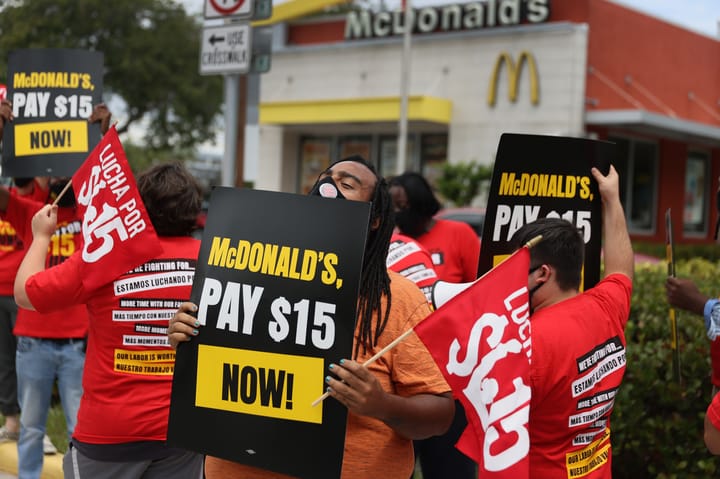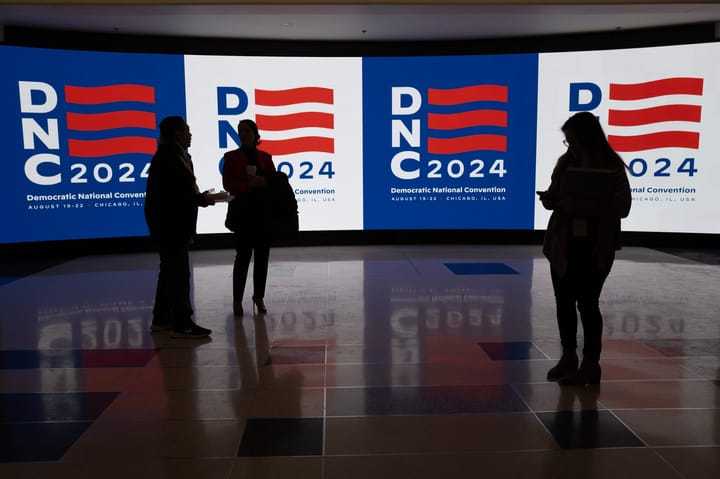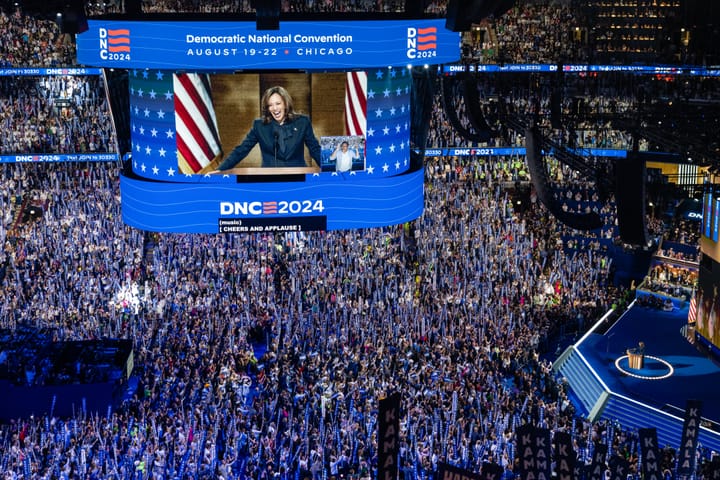Tens of thousands of people are headed to the United Center in Chicago, where Democratic National Convention delegates will adopt the 2024 Democratic Party Platform. On Tuesday night, DNC delegates will get down at an event called “The Party Line” thrown by communications and public affairs firm Bully Pulpit International (BPI).
BPI is one of the top-paid consultants by the constellation of Democratic Party groups and campaigns, bringing in about $400 million over the past two decades for services in digital ads, paid media, and a wide variety of strategic communications from political organizations, according to Federal Election Commission records. Starting in February, the Democratic presidential campaign, then for Joe Biden’s re-election, began paying BPI millions of dollars for media production and ad buys.
BPI’s website prominently displays the logo of its client the Biden-Harris campaign, now headlined by Vice President Kamala Harris, alongside the logos of companies like McDonald’s, Uber, and Walmart. At the same time, it is doing image rehabilitation work for large corporations that are fighting against proposals in the Democrats’ draft platform.
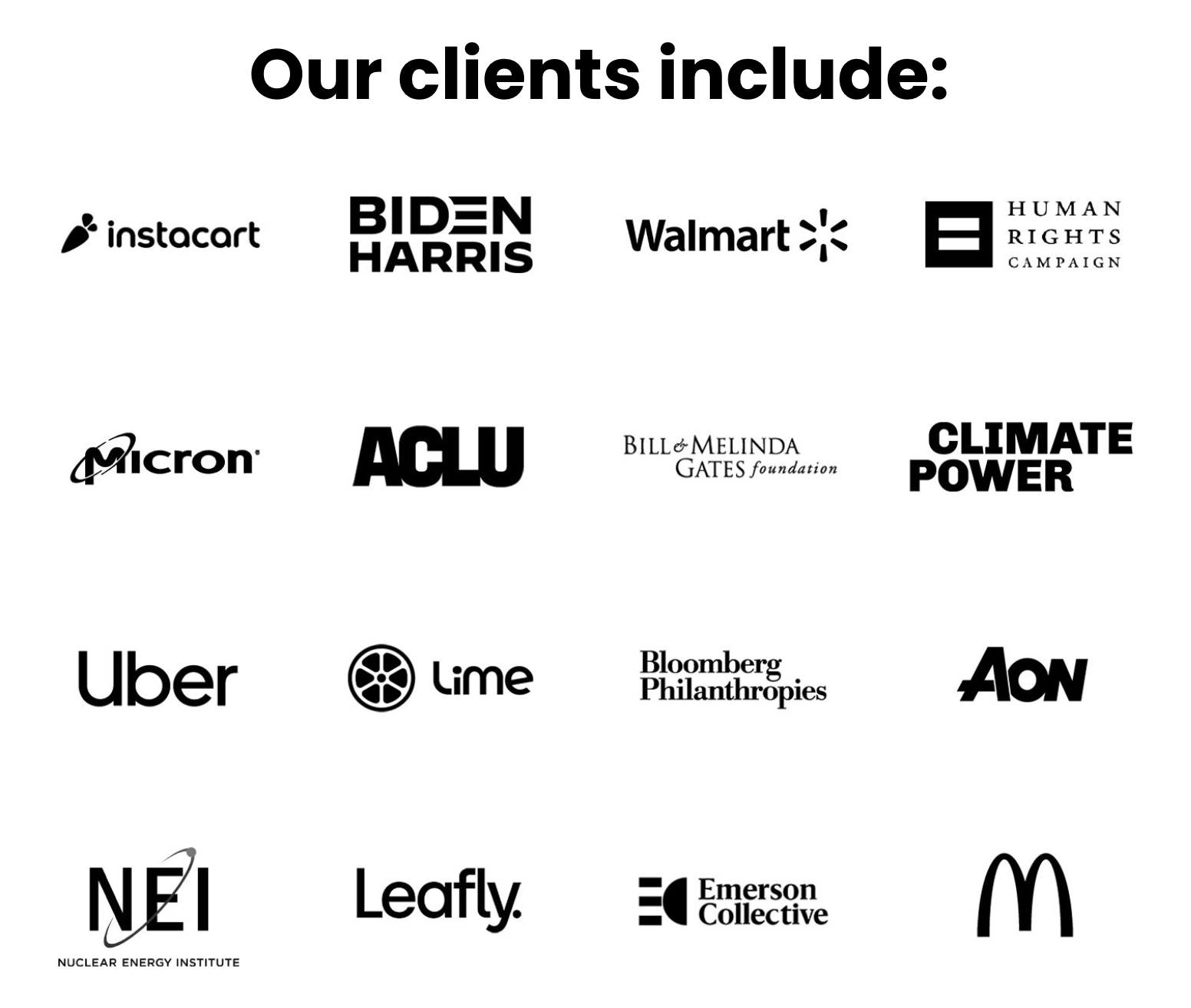
Bully Pulpit, founded in 2009 out of Barack Obama’s presidential win by Obama campaign staffer Andrew Bleeker and digital media strategist Ben Clark, is known as a stop for Democratic staffers in the revolving door circuit between governments and corporate America. For one, BPI senior advisor Robert Gibbs worked as Obama White House press secretary before becoming global chief communications officer for McDonald’s, joining BPI as a partner, then moving this year to lead PR for the conglomerate Warner Bros. Discovery.
After $100-million-plus spends with the agency by both the Obama and Clinton campaigns, the Democratic National Committee has been BPI’s third largest FEC-filing client, at around $64 million. The 2020 Biden for President campaign paid BPI more than $41.5 million and the 2024 committee, now named Harris for President, has paid BPI about $10.5 million so far. Other multi-million dollar political clients include the Democratic Senatorial Campaign Committee (DSCC), the Democratic Congressional Campaign Committee (DCCC), and super PAC Priorities USA Action. Since the 2022 midterms, BPI has done advertising and “other” work for Future Forward, the top super PAC backing the Democratic presidential ticket. In the 2020 and 2022 cycles, BPI was paid six-figure amounts for digital ad work by the mammoth super PACs closely connected to Democratic congressional leaders, the Senate Majority PAC (SMP) and House Majority PAC (HMP).
BPI is not a registered federal lobbyist, but the firm touts its services to “change policy” in addition to marketing, media tracking, and technology. It advertises that its Orbit platform helps clients reach key decision-makers like the finance director of a campaign, the legislative director of an elected official’s office, and high-ranking civil servants.
Last month, BPI announced a new tax policy practice, looking ahead to the battle over the Republican-passed Tax Cuts and Jobs Act of 2017, parts of which are set to expire next year. Republican candidates are pledging to extend the expiring provisions of the tax law, which disproportionately benefit wealthy individuals.
In a statement to Punchbowl News, BPI said, “The policy debate here is going to be one of the most partisan ever. It’s always tricky for brands, causes and more to navigate advocating for their policy priorities without getting caught in partisan crosshairs – but tax policy is a topic where they truly can’t afford to stay quiet, particularly at this moment. To successfully execute that balancing act, companies and the coalitions working on their behalf, they need comms and public affairs support just as much as they need traditional lobbying support – especially on a topic as complex as tax.” The practice will be headed by Scott Mulhauser, a former aide to Commerce Secretary Gina Raimondo, and Adam Hodge, a former executive at asset management firm Ariel Investments.
For many years, BPI client McDonald’s has been battling a rule, finalized by the National Labor Relations Board in March, that protects lower-paid workers, including by changing the guidance on when two companies are considered joint employers. The rule is specifically named as a Democratic accomplishment in the draft 2024 DNC platform, which was announced by the Democratic National Committee on July 13, before President Biden bowed out of the presidential race. The Department of Labor rule rolls back Trump-era guidance that made it easier for corporations to claim that workers were independent contractors, thus denying them minimum wage, overtime pay, and other labor protections. McDonald’s lobbied on the rule this year in contacts made to Congress, the Department of Labor (DOL), and the Executive Office of the President (EOP), according to congressional records.
BPI’s client showcase promotes its PR work helping McDonald’s “bolster reputation” among “workforce and community leaders.” BPI goes on: "With consumers increasingly judging global brands based on perceptions of values and social impact, McDonald’s has faced a complex set of challenges raising questions about the company’s impact on communities and society at large. From the ingredients, preparation, and sourcing of its food to the nature of employment, consumers and influencers alike needed to hear McDonald’s commitment to using its scale for good."
BPI client Walmart has been accused of anti-union campaigns going back decades by the Center for Popular Democracy, an economic justice nonprofit, as well as Human Rights Watch and Olivier De Schutter, the UN special rapporteur on extreme poverty and human rights.
Of its ad campaign for Walmart over nine years, BPI’s website reads, “We’ve helped drive a change narrative around Walmart as a committed, caring, forward-looking corporation.” BPI goes on to describe its proprietary tools: “We used Orbit to develop custom audiences consisting of the most influential and powerful policy elites, business elites and ESG investors. We communicate with them directly through paid advertising and then use our proprietary survey tool, Vantage, to track shifts in opinions and brand favorability, allowing us to optimize media mix and creative to create the most impactful communications environment.”
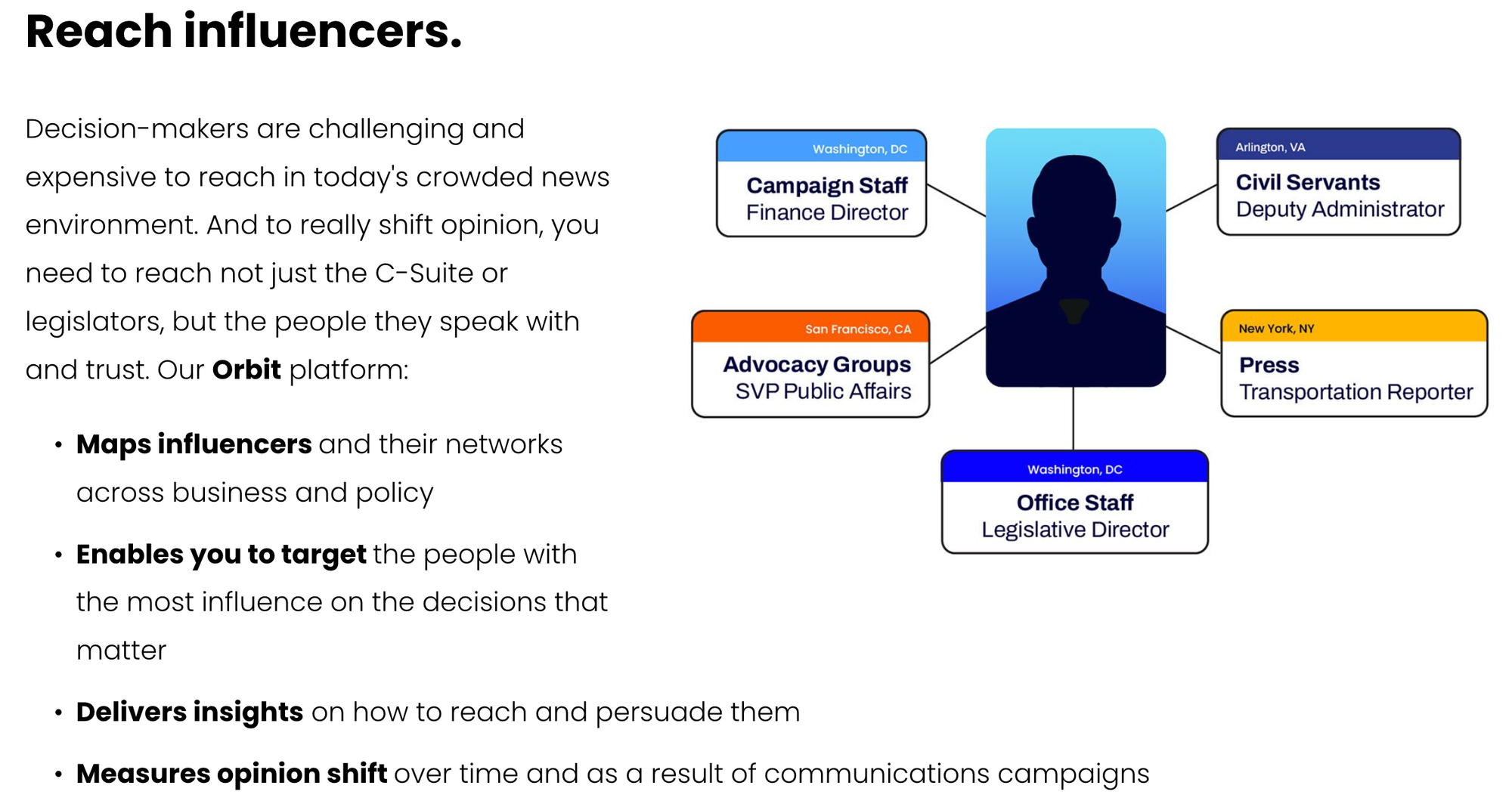
Walmart spent more than $7 million on federal lobbying last year, according to records compiled by OpenSecrets, often mentioning to Congress and the DOL the issues of “wages, benefits and future of work.”
BPI did not respond to requests for comment on its wide-ranging work for large companies that oppose labor measures mentioned in the draft DNC platform.
BPI Clients and Labor Lobbying
The DNC’s summary of the new platform makes special mention of the Protecting the Right to Organize Act (PRO Act), a top legislative priority of labor unions. “We’ll keep fighting to pass the PRO Act, to give everyone the right to organize for better pay, benefits, and working conditions and we’ll finally raise the federal minimum wage to $15 an hour,” the document says.
